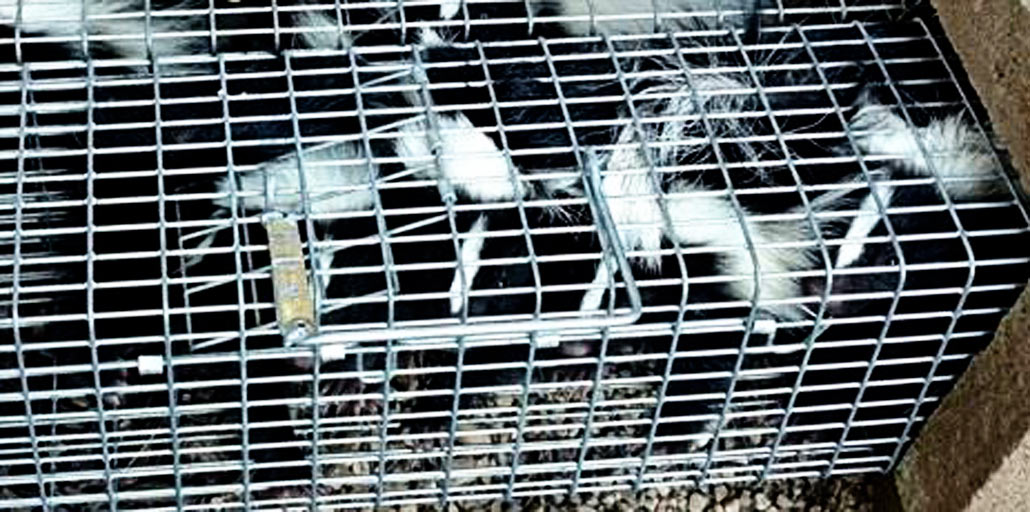- USA Wildlife Removal Education Guide - Sick Skunk Symptoms
Sick Skunk Symptoms

Skunks are susceptible to 40 or more bacterial and viral infections as well as a variety of parasites, many of which are symptomatically similar and most of which are serious reasons for both humans and pets to maintain a safe distance.
One of the most common serious ailments skunks contract and pass along is rabies, a viral infection of the brain and nervous system. It manifests in erratic and sometimes aggressive behavior that should be easy to detect and usually, easy to avoid: usually, that is, because rabid animals, including skunks, often display aggressive behavior that is much more of a danger to pets than to people, most of whom know to see and avoid.
You can usually identify a rabid skunk by its actions. The animals normally are placid and nonaggressive, but when afflicted with the aggressive form of the disease, they may try to approach, chase, bite, claw, or otherwise display threatening behavior towards people or pets. The disease may also cause them to generate excessive amounts of saliva, causing them to drool about their mouth.
Find out: Will a high pitch sound deterrent machine work against skunks?
There is also a form of rabies that manifests in virtually an opposite way. In these cases, the skunk will appear lethargic; it may wander in circles as if confused, and it may actually approach people and pets in a non-threatening manner, as if having no fear.
Viral infections such as distemper display symptoms in a variety of ways, including fever, discharges from an animal’s nose and eyes, general weakness and disorientation. Parasitic infections often manifest in observable weakness and frequently, diarrhea. The animals are also susceptible to infections deriving from parasites and these can be passed along both to other wild creatures and to domestic pets through the animals’ stool.
Generally speaking, skunks are docile creatures that will go their way if (1) they are left alone and (2) they are not encouraged to stay by the ready availability of food. Whether they appear healthy or ill, it is best to leave them alone.
If you need help, we service the entire USA! Click here for a wildlife removal specialist in your town!
Go back to the main Skunk Removal page for more information about Sick Skunk Symptoms.

